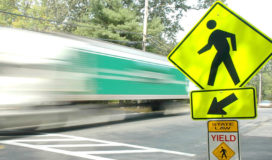Deceptive trade practices are unfair trade practices characterized by use of false, fraudulent, or otherwise unethical methods to gain an advantage or turn a profit.
Some common examples of unfair trade methods include false representation of a good or service, false free gift or prize offers, false advertising and deceptive pricing.
Although California has not adopted the Uniform Deceptive Trade Practices Act, there are laws that specifically prohibit false advertising (Bus. & Prof. §17500 et seq.) and odometer tampering (Veh. C. §28050, et seq. & Veh. §40000.15).
False advertising happens in a number of forms;
- Deceptive Pricing – This may happen in the form of a false “sale.”
- Bait and Switch – A seller may offer a product at a low price with the aim of luring a customer. When the buyer arrives, the low-priced item is not unavailable, but another similar higher-priced item is available.
- Low Stock – This is almost similar to the bait and switch method.
Odometer tampering is a criminal offense committed mostly by unscrupulous car sellers who wish to make a car seem like it has lower mileage than it actually does. California laws also prohibit the unplugging of odometers for the purpose of not calculating mileage and the sale of a vehicle with more mileage than is reflected on the odometer.
Victims of false advertising and unfair trade practices may bring suit for injunction or restitution in accordance to Bus. & Prof. §17203. The attorney general, the district attorney or other prosecuting attorney may bring suit for injunctive and civil penalties as stipulated in Bus & Prof. §17535.
These offenses are punishable by imprisonment in a county jail not exceeding six months or a fine not exceeding $2500/both.










